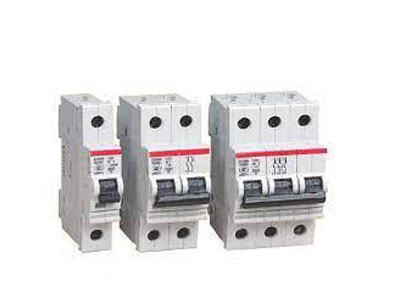What Is The Difference Between A Fuse And A MCB?
Key Takeaway
The main difference between a fuse and an MCB (Miniature Circuit Breaker) is how they handle electrical overloads. A fuse is a one-time use device that melts when the current exceeds a certain limit, cutting off the circuit. Once blown, it needs to be replaced.
An MCB, on the other hand, is reusable. It automatically trips when an overload or short circuit occurs and can be reset after the issue is resolved. This makes MCBs more convenient and safer for modern electrical systems, especially in homes and industries.
Understanding the Function of Fuses
Fuses are among the oldest forms of electrical protection devices, designed to protect circuits from overloads and short circuits. Inside a fuse, there’s a thin wire that melts when the current exceeds a specific limit, effectively cutting off the electrical flow and preventing potential damage to the system. This melting is a safety mechanism to avoid overheating, electrical fires, or damage to devices.
However, once a fuse blows, it needs to be replaced. This can be inconvenient, especially if the fuse is hard to access or frequently blows due to overloading. In residential settings, fuses were traditionally used for decades, but as electrical systems became more complex, their limitations became more apparent. With modern advancements, fuses are gradually being replaced by more efficient devices like Miniature Circuit Breakers (MCBs).

How MCB Replaces Traditional Fuses
The Miniature Circuit Breaker (MCB) offers a more convenient and reliable way to protect electrical circuits. Unlike fuses, which need to be replaced after they blow, an MCB can simply be reset after it trips. This is one of the most significant advantages of MCBs over traditional fuses. MCBs have both thermal and magnetic trip mechanisms that respond to overloads and short circuits by disconnecting the circuit, just like a fuse, but without needing a full replacement.
In homes and industries today, MCBs are widely adopted because of their reusability and ease of use. They provide faster response times to electrical faults, ensuring the system is protected almost instantly. Additionally, with MCBs, it’s much easier to identify which circuit is faulty since the MCB switches to the off position when it trips, making troubleshooting far simpler than with fuses. As a result, MCBs have become the go-to solution for circuit protection in modern electrical installations.
Safety and Performance Differences Between Fuses and MCBs
When it comes to safety, MCBs have several advantages over fuses. While both devices aim to protect against overloads and short circuits, the precision and speed of MCBs are superior. Fuses can be slower in reacting to faults, especially if the current exceeds the limit only slightly. In contrast, MCBs react more quickly and with greater precision, ensuring that circuits are disconnected before any real damage can occur.
Additionally, fuses are more prone to nuisance tripping. A temporary spike in current may cause a fuse to blow, whereas an MCB is designed to tolerate minor fluctuations while still providing protection against sustained overloads or short circuits. This makes MCBs much more efficient in modern homes and industries where electrical loads can vary throughout the day.
From a maintenance standpoint, MCBs also offer superior safety. When a fuse blows, replacing it often requires dealing with live circuits, which can be hazardous for untrained individuals. In contrast, resetting an MCB is a simple, safe process that doesn’t require handling electrical wires, significantly reducing the risk of electrical shock.
Benefits of MCB Over Fuses
The primary benefit of MCBs over fuses is their reusability. Once a fuse blows, it needs to be replaced, which can be inconvenient and costly over time. MCBs, on the other hand, can be reset, making them a more economical and environmentally friendly option. There’s no need to buy new fuses every time an electrical fault occurs.
Another advantage is convenience. MCBs offer a clear visual indication when they trip, allowing homeowners or electricians to quickly identify which circuit is experiencing problems. This not only saves time but also minimizes disruption. Fuses, however, often require more effort to locate the fault, especially if they are part of an older, less organized system.
MCBs also handle higher current capacities more effectively than fuses, making them suitable for both residential and industrial use. Their ability to trip faster and reset more easily ensures that the system is safeguarded with minimal downtime. Overall, MCBs represent a safer, more efficient, and cost-effective solution compared to traditional fuses.
When to Use MCB Over a Fuse
In most modern applications, an MCB is the preferred choice for protecting electrical circuits. MCBs should be used over fuses in settings where convenience, reusability, and faster response times are essential. Homes with modern appliances, offices with computers, and industries with heavy machinery all benefit from the precision and quick-tripping action of MCBs.
That said, there are still some applications where fuses may be more appropriate. Fuses can be advantageous in systems that don’t require frequent maintenance or where cost is a significant concern in low-power circuits. Additionally, in high-speed or sensitive electrical applications like certain automotive systems, fuses may still be the best choice.
Ultimately, MCBs are better suited for environments where frequent tripping might occur due to variable electrical loads, such as homes with HVAC systems, kitchen appliances, or multiple electronic devices. Their ease of resetting and superior safety make MCBs the more practical choice for most applications.
Conclusion
In conclusion, while both fuses and MCBs serve the essential function of protecting electrical circuits, MCBs offer superior safety, reusability, and performance. They can handle electrical faults more efficiently, trip faster, and are easier to reset, making them the better choice for most residential and industrial applications. Fuses, while still useful in some settings, lack the convenience and advanced protection features offered by MCBs. As a result, MCBs have become the preferred option in modern electrical systems, ensuring that circuits and appliances are better protected with less maintenance required.
